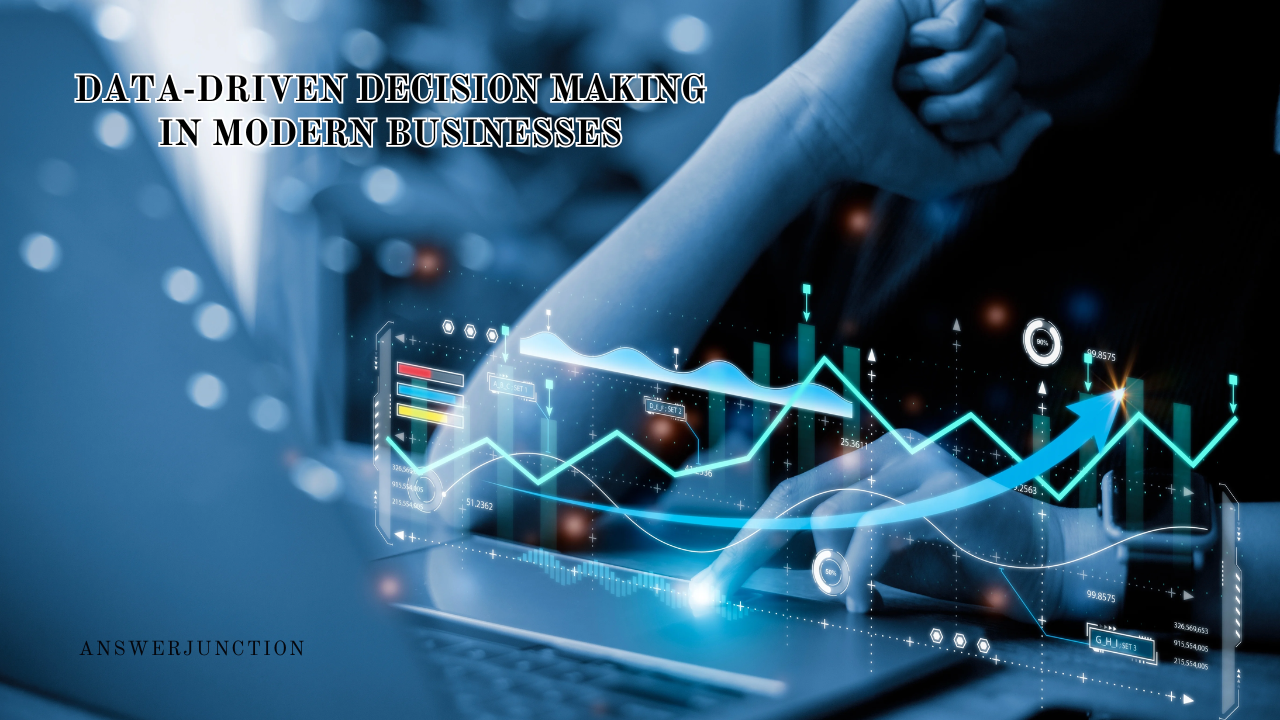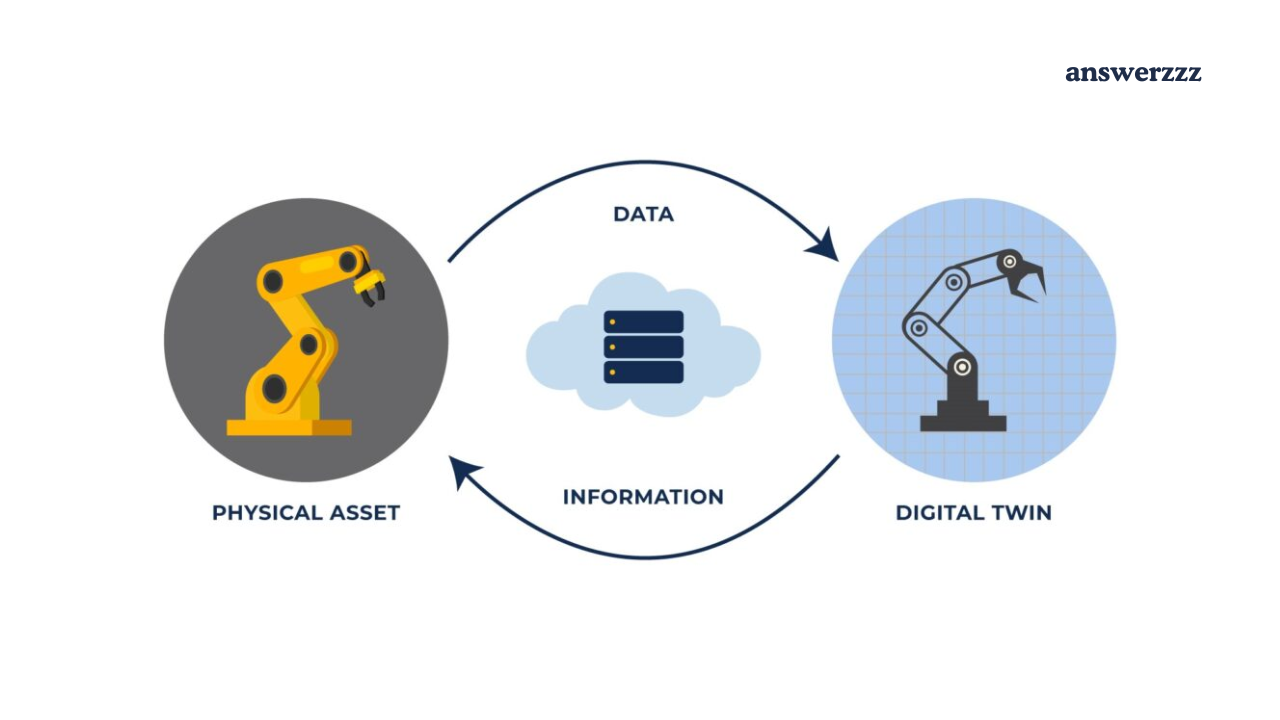In today’s fast-paced, digitally-driven world, data is transforming the way businesses operate and make decisions. Data-driven decision-making (DM) allows companies to base their choices on data analysis and interpretation rather than intuition or personal experience. By leveraging data, modern businesses can uncover trends, identify customer preferences, and improve operational efficiencies, leading to more informed strategies and better outcomes. This approach is reshaping everything from marketing to product development and beyond, making DDDM a crucial aspect of staying competitive in the marketplace.
The Rise of Data in Business Operations
The increase in available data has accelerated the transition to data-driven decision-making. With the advent of technology like cloud computing, big data analytics, artificial intelligence, and machine learning, businesses now have access to vast amounts of data from various sources. Social media, online shopping, mobile applications, and IoT devices are just a few of the channels generating valuable data that businesses can use to make more informed decisions.

As organizations collect more data, they require efficient systems to store, manage, and analyze it. Many companies invest heavily in data infrastructure, developing internal data analytics teams, or outsourcing to external data firms. These investments ensure that the data collected is not just stored but is accessible and interpretable, allowing for real-time analysis and actionable insights. In today’s business landscape, having a robust data infrastructure has become as essential as traditional resources like labour and capital.
Advantages of Data-Driven Decision-Making
Data-driven decision-making offers several key advantages that are transforming how businesses function. Firstly, data-backed decisions are often more objective. By relying on data rather than subjective judgment, businesses can reduce biases, minimize human error, and make decisions that are more likely to yield positive outcomes. Objective decision-making is especially valuable in high-stakes scenarios, such as market expansions, new product launches, or strategic investments.
Another significant advantage is improved efficiency. Data can reveal inefficiencies and bottlenecks within operations, allowing businesses to optimize processes and improve productivity. For example, a company might analyze production data to identify where delays are occurring in the supply chain, or they could examine customer data to streamline service offerings and reduce redundancy.
Customer insights are a third major benefit. With data, businesses can gain a deeper understanding of their customers’ needs and preferences, enabling more personalized and targeted offerings. In the age of digital marketing, data-driven strategies allow businesses to create campaigns tailored to specific demographics, leading to higher engagement rates and improved ROI. Additionally, data allows businesses to predict future customer behaviours, helping them stay ahead of trends and adapt to shifting demands.
Applications of Data-Driven Decision-Making in Business
DDDM can be applied across various business functions, each offering unique advantages and insights. In marketing, for instance, data can track campaign performance, customer engagement, and conversion rates in real time. This allows marketing teams to adjust campaigns on the fly, focusing resources on what works and eliminating what doesn’t. Data-driven marketing often involves advanced analytics tools, such as customer segmentation and predictive analytics, which help businesses deliver more effective, personalized content to their target audience.
In product development, DDDM enables companies to create products that meet actual customer needs. By analyzing market trends and customer feedback, businesses can innovate based on validated demand rather than assumptions. For instance, companies in the tech industry frequently use data analytics to assess user behaviour, which helps them refine existing products or develop new features that better serve their audience.
Sales departments benefit from DDDM by using data to predict customer buying patterns, optimize pricing strategies, and forecast sales trends. Data can reveal the most promising leads, helping sales teams focus their efforts on potential customers most likely to convert. Additionally, analyzing customer behaviour and preferences enables businesses to create more effective sales pitches and close deals more efficiently.
Operations and supply chain management is another critical area where data-driven decision-making is making a considerable impact. Supply chains generate vast amounts of data related to inventory levels, supplier performance, logistics, and demand forecasting. By analyzing this data, businesses can improve inventory management, reduce waste, and increase the speed and reliability of their supply chains. Data-driven supply chains can react more effectively to changes in demand, minimizing the risks of overproduction or stockouts.
Human resources also benefit from data-driven insights, particularly in areas like recruitment, performance evaluation, and employee engagement. For example, HR teams can use data analytics to identify top-performing employees, understand turnover patterns, and create strategies for retaining talent. This data-driven approach in HR can result in a more motivated and engaged workforce, leading to improved productivity and lower hiring costs.
Tools and Technologies Supporting DM
Several tools and technologies facilitate data-driven decision-making, enabling companies to collect, process, and analyze data efficiently. Business Intelligence (BI) platforms, such as Tableau, Microsoft Power BI, and Qlik, are essential for data visualization and reporting, providing a clear overview of business metrics and KPIs. These platforms allow users to create dashboards, charts, and graphs that make complex data more accessible and understandable.

For more advanced analysis, many companies rely on machine learning algorithms and predictive analytics tools. These technologies can identify patterns within large datasets, enabling businesses to make predictions about future outcomes. Predictive analytics is valuable for forecasting sales, identifying market trends, and anticipating customer behaviour, giving companies a competitive edge.
Data management platforms (DMPs) and customer data platforms (CDPs) are also becoming popular as they allow businesses to centralize and organize customer data from various sources. CDPs, for example, provide a single, unified view of customer interactions, enabling personalized marketing strategies and improved customer service. These platforms are particularly useful for e-commerce businesses, where understanding customer behaviour is critical to driving sales.
Cloud computing has further revolutionized DDDM by providing scalable storage solutions and remote access to data. Companies no longer need to maintain massive on-site data centres, as cloud platforms like AWS, Google Cloud, and Microsoft Azure offer robust, scalable data storage and analytics capabilities. This flexibility allows businesses of all sizes to access the benefits of data-driven decision-making without incurring high infrastructure costs.
Challenges of Implementing DM
Despite its benefits, implementing data-driven decision-making is not without challenges. One of the primary issues is data quality. Poor-quality data can lead to inaccurate analysis and misguided decisions. Data may be incomplete, outdated, or inconsistent, resulting in decisions that fail to reflect current realities. Companies need to invest in data cleansing and management practices to maintain data accuracy and integrity.
Another challenge is data privacy and compliance. As data collection increases, so does the responsibility of businesses to protect sensitive information. Laws such as the General Data Protection Regulation (GDPR) and the California Consumer Privacy Act (CCPA) impose strict guidelines on data usage, requiring companies to obtain consent from users and safeguard their information. Non-compliance can result in significant fines and damage to a company’s reputation, so businesses must ensure their data practices adhere to these regulations.
The need for skilled personnel is another hurdle. Data-driven decision-making requires employees with expertise in data analysis, machine learning, and artificial intelligence. However, there is a global shortage of data scientists and analysts, which can make it challenging for businesses to build effective data teams. Additionally, even with data experts on board, fostering a culture that values data over intuition can be difficult, especially in companies with longstanding, tradition-based decision-making processes.
The Future of Data-Driven Decision-Making
As data continues to grow in volume and complexity, the future of data-driven decision-making looks promising but will require continuous adaptation. Emerging technologies, such as artificial intelligence and machine learning, are likely to become even more integrated into DM processes, allowing for real-time insights and automated decision-making. For example, AI-driven analytics could enable businesses to make rapid adjustments to their strategies in response to shifting market dynamics, without the need for human intervention.
Furthermore, the rise of edge computing will allow data to be processed closer to its source, such as IoT devices or smartphones, reducing latency and enabling faster decision-making. This capability will be particularly valuable in sectors where real-time data is essential, such as manufacturing, healthcare, and transportation. As data collection and analysis become faster and more efficient, businesses will be able to make decisions that are not only data-driven but also near-instantaneous.
Data democratization is another trend shaping the future of DDDM. Companies are increasingly adopting self-service analytics platforms that allow employees across various departments to access and interpret data independently. By putting data analysis tools in the hands of non-technical staff, businesses can foster a data-centric culture and encourage more informed decision-making at all levels of the organization.

Data-driven decision-making has become an indispensable aspect of modern business. By relying on data rather than intuition, companies can make better-informed choices, improve efficiency, and better understand their customers. As technology advances, the tools and methods for implementing DDDM will only become more sophisticated, providing businesses with even greater insight and agility. However, challenges related to data quality, privacy, and workforce skills remain, and companies must address these to fully realize the benefits of DDDM. In a DRMd where data is becoming increasingly central to every aspect of business, those who invest in data-driven strategies will be best positioned to thrive in the future.



